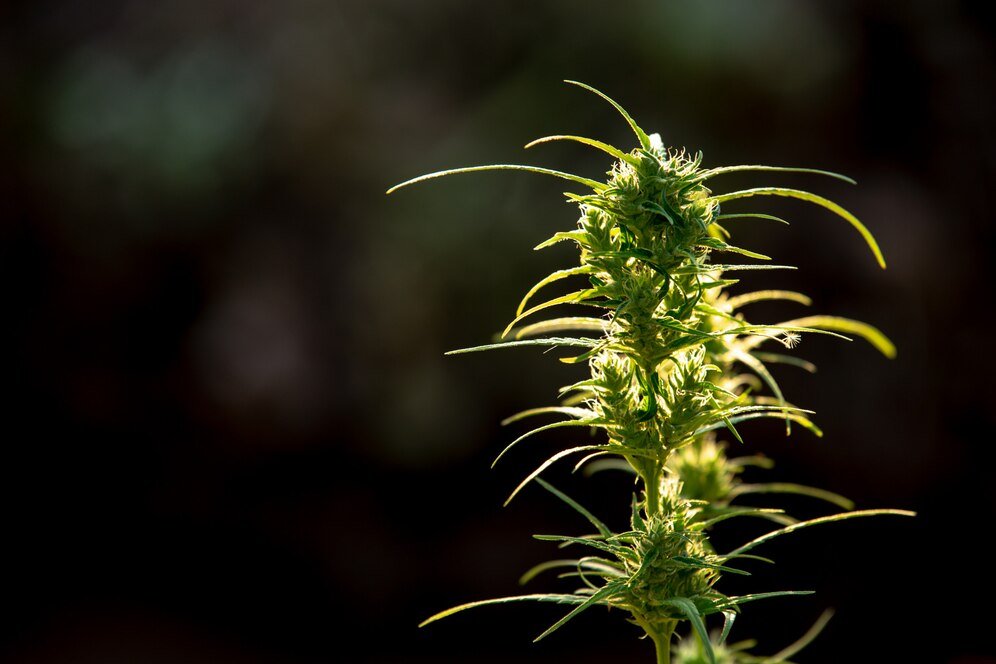Is Marijuana Addictive? Unpacking the Truth About Cannabis and Dependence
“Is marijuana addictive?” This is a question that has been debated for decades, often fueled by misinformation and shifting societal views on cannabis….
“Is marijuana addictive?” This is a question that has been debated for decades, often fueled by misinformation and shifting societal views on cannabis. As marijuana legalization and acceptance continue to spread on CBD derived products such as cbd roll on for pain, it’s crucial to delve into the scientific evidence and understand the potential for dependence. While not everyone who uses marijuana will become addicted, the reality is that for a significant portion of users, the answer to “Is marijuana addictive?” is yes.
This comprehensive guide will explore the nuances of marijuana addiction, examining the science behind it, the factors that contribute to dependence, and what to look out for. We’ll also address common misconceptions and provide valuable information for those concerned about their own or a loved one’s marijuana use.
Understanding Marijuana and Its Effects
Marijuana, also known as cannabis, is a psychoactive drug derived from the Cannabis sativa plant. Its primary psychoactive compound is delta-9-tetrahydrocannabinol (THC), which interacts with the brain’s endocannabinoid system. This interaction leads to various effects, including altered perception, mood changes, relaxation, and increased appetite.
While many people use marijuana recreationally without developing significant problems, the potential for addiction exists. To understand why, we need to look at the science of addiction itself.
What is Addiction?
Addiction, also known as substance use disorder, is a chronic, relapsing brain disease characterized by compulsive drug seeking and use, despite harmful consequences. It involves changes in the brain’s reward system, leading to intense cravings and a diminished ability to control drug use.
The Science Behind Marijuana Addiction
So, is marijuana addictive in the same way as other substances? The answer lies in THC’s impact on the brain. Regular marijuana use can lead to changes in the endocannabinoid system and the brain’s reward pathways.
Here’s how it works:
- Dopamine Release: When THC enters the brain, it triggers the release of dopamine, a neurotransmitter associated with pleasure and reward. This pleasurable sensation reinforces the behavior of using marijuana, making users want to repeat the experience.
- Tolerance: With repeated exposure to THC, the brain can adapt, requiring higher doses to achieve the same desired effects. This is known as tolerance.
- Dependence: As tolerance develops, the body and brain become accustomed to the presence of THC. If marijuana use is stopped or significantly reduced, withdrawal symptoms can occur.
- Cannabis Use Disorder (CUD): For some individuals, continued marijuana use despite negative consequences can develop into Cannabis Use Disorder (CUD), the clinical term for marijuana addiction.
Factors Influencing Marijuana Addiction
While the potential for addiction exists, not everyone who uses marijuana will develop CUD. Several factors can influence the likelihood of becoming addicted:
- Frequency of Use: The more frequently someone uses marijuana, the higher their risk of developing dependence. Daily or near-daily use is strongly associated with addiction.
- Potency of Marijuana: Modern marijuana strains often have significantly higher THC content than in the past, increasing the potential for strong psychoactive effects and dependence.
- Age of First Use: Individuals who begin using marijuana in their adolescence or early adulthood are more vulnerable to addiction due to their still-developing brains.
- Method of Consumption: Smoking and vaping marijuana deliver THC to the brain more rapidly than edibles, potentially increasing the risk of addiction for some individuals.
- Individual Vulnerabilities: Genetic predisposition, mental health conditions (such as anxiety, depression, and ADHD), and a history of substance abuse can increase an individual’s susceptibility to marijuana addiction.
- Environmental Factors: Stressful life circumstances, peer influence, and easy access to marijuana can also play a role.
Recognizing the Signs and Symptoms of Marijuana Addiction
It’s crucial to be aware of the signs and symptoms that may indicate a developing problem with marijuana. If you or someone you know exhibits several of these signs, seeking professional help may be necessary:
- Craving: Experiencing intense urges or desires to use marijuana.
- Tolerance: Needing to use more marijuana to achieve the same effects.
- Withdrawal Symptoms: Experiencing unpleasant physical and psychological symptoms when marijuana use is stopped or reduced (e.g., irritability, anxiety, sleep difficulties, decreased appetite).
- Using More Than Intended: Using marijuana in larger amounts or for longer periods than planned.
- Difficulty Cutting Down: Making unsuccessful attempts to reduce or control marijuana use.
- Spending a Lot of Time Obtaining, Using, or Recovering: Devoting a significant amount of time to activities related to marijuana.
- Giving Up Important Activities: Reducing or stopping participation in social, occupational, or recreational activities due to marijuana use.
- Continuing Use Despite Problems: Continuing to use marijuana despite knowing it is causing or worsening physical, psychological, or social problems.
- Neglecting Responsibilities: Failing to fulfill obligations at work, school, or home due to marijuana use.
Is Marijuana Addiction as Severe as Other Substance Addictions?
While the withdrawal symptoms associated with marijuana are generally less severe than those associated with substances like opioids or alcohol, marijuana addiction can still have significant negative impacts on an individual’s life. It can lead to problems with relationships, finances, work or school performance, and overall well-being.
Addressing Common Misconceptions About Marijuana Addiction
One common misconception is that marijuana is not addictive at all. While it’s true that the risk of addiction is lower compared to some other substances, the evidence clearly shows that is marijuana addictive for a significant number of people.
Another misconception is that only “heavy” users can become addicted. While frequent and high-dose use increases the risk, even individuals who use marijuana less frequently can develop dependence, especially if they have underlying vulnerabilities.
Treatment Options for Marijuana Addiction
If you or someone you know is struggling with marijuana addiction, help is available. Treatment options can include:
- Behavioral Therapies: Cognitive Behavioral Therapy (CBT), Motivational Interviewing, and Contingency Management can help individuals develop coping mechanisms, address underlying issues, and reduce marijuana use.
- Medications: Currently, there are no FDA-approved medications specifically for marijuana addiction. However, medications may be used to manage co-occurring mental health conditions or withdrawal symptoms.
- Support Groups: Groups like Marijuana Anonymous can provide a supportive community for individuals in recovery.
- Residential Treatment: In more severe cases, residential treatment programs may be necessary to provide intensive support and therapy.
Prevention is Key
Preventing marijuana addiction starts with education and awareness. Understanding the potential risks, especially for adolescents and young adults, is crucial. Responsible use, delaying initiation, and being mindful of one’s own patterns of use are important steps in minimizing the risk of developing CUD.
Conclusion: The Answer to “Is Marijuana Addictive?” is Yes, for Some
In conclusion, while not everyone who uses marijuana will become addicted, the answer to “Is marijuana addictive?” is definitively yes for a significant portion of users. The potential for dependence is real and can have significant negative consequences. Understanding the science behind marijuana addiction, recognizing the risk factors and symptoms, and seeking help when needed are crucial steps in addressing this important public health issue.
FAQ: Your Questions About Marijuana Addiction Answered

Is marijuana more addictive now than it used to be?
Yes, the potency of marijuana has generally increased over the years, meaning higher THC levels. This higher potency can potentially increase the risk of developing dependence for some individuals.
What are the withdrawal symptoms of marijuana?
Common marijuana withdrawal symptoms include irritability, anxiety, sleep difficulties, decreased appetite, restlessness, and sometimes physical discomfort like headaches or stomach issues. These symptoms are typically mild compared to other substances but can still be significant for some individuals.
Can you become psychologically addicted to marijuana even if you don’t experience physical withdrawal?
Yes, psychological dependence is a key aspect of marijuana addiction. This involves strong cravings, a feeling of needing marijuana to cope or function, and difficulty controlling use, even without severe physical withdrawal symptoms.
Is marijuana addiction a “real” addiction?
Absolutely. Cannabis Use Disorder (CUD) is a recognized medical condition in the Diagnostic and Statistical Manual of Mental Disorders (DSM-5). It meets the criteria for addiction, characterized by compulsive drug seeking and use despite negative consequences.
If someone uses marijuana for medical purposes, can they still become addicted?
Yes, individuals using marijuana for medical purposes can still develop Cannabis Use Disorder. While the intention is therapeutic, the psychoactive effects of THC can still lead to tolerance, dependence, and addiction, especially with frequent or high-dose use. Careful monitoring by a healthcare professional is crucial in these cases.







